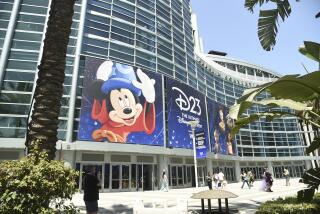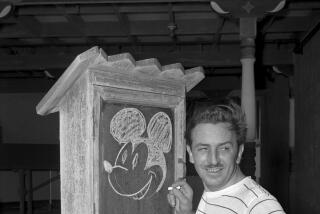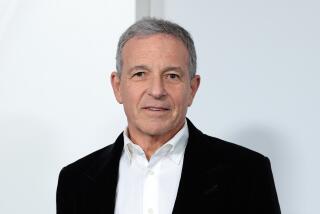Pressler’s Disney Success Was by Accident
We are told Paul Pressler [former head of Walt Disney Co.’s theme parks] was a rising star, a tight-fisted manager and that he was good for shareholders.
Pressler was the hero of those who thought shareholders were more important than audiences. He is the architect of the philosophy of taking as much money from the customer as you can and delivering as meager an experience as you can get away with.
Pressler took over Disneyland in 1994. His first summer there, the park opened Indiana Jones, a high-tech screamer of a thrill ride based on one of Hollywood’s most valuable franchises--a project already under construction when he arrived. Crowds swarmed.
His second summer, he ended the Main Street Electrical Parade. Crowds filled the park well into the fall to see it “the last time.” In his first two years Disneyland had huge attendance.
One of those successes was based on decisions made before he arrived, one was a providential result of a very bad decision. The replacement parade, Light Magic, is still referred to by cast members and others in the industry as Light Tragic. But those two huge years made Pressler’s reputation.
And then there is California Adventure. Any new theme park built to meet the expectations of the Disney audience will cost about $1 billion. Pressler decided it could be done for $700 million--a figure considered unrealistically low by longtime company insiders. One of his concerns was that the new park should not upstage Disneyland.
He certainly succeeded there.
Richard Murphy
Whittier
*
Business welcomes your letters. Write to: Letters to the Business Editor, Los Angeles Times, 202 W. 1st St., Los Angeles, CA 90012. Submit e-mail letters to bizletters@ latimes.com. Please keep letters brief; they are subject to editing. Letters must contain your address and phone number.
More to Read
Inside the business of entertainment
The Wide Shot brings you news, analysis and insights on everything from streaming wars to production — and what it all means for the future.
You may occasionally receive promotional content from the Los Angeles Times.










